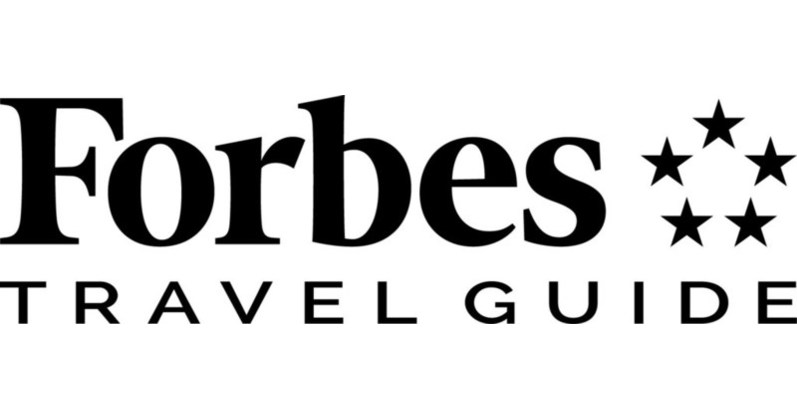“It became a lot easier to just go to the deli next door to get some coffee, and I made other arrangements for my breakfast meetings,” he said.
These are the kinds of service disruptions travelers can continue to expect during their spring and summer trips. Hotel housekeepers are servicing rooms less often. Restaurants are struggling to find staff. Airlines are dealing with shortages of their own, causing delays and cancellations.
As many pandemic travel restrictions ease, taking a trip may feel somewhat semi-normal, but a lingering labor shortage means there are not enough employees to meet pent-up demand. Now as the busy summer season looms, you may feel the shortage on your next vacation.
‘The bubble has burst’
Jamie Larounis, a travel industry analyst with UpgradedPoints.com, said “we’re at a point right now where there is the most optimism there has ever been” regarding travel demand in the wake of the pandemic, in part because of dwindling covid rules and lower case numbers.
“Now we’re at the point where the bubble has burst, and maybe the airlines and hotels weren’t quite ready for it,” he said, not because they weren’t anticipating higher demand but because they were unable to hire enough people. Plus, travelers are facing higher prices at almost every turn — making vacations both expensive and challenging.
Many people in the United States have stayed on the job market’s sidelines in the wake of the pandemic, contributing to a shortage of labor in many industries, including travel and hospitality.
Leisure and hospitality led an increase in jobs in March, accounting for 112,000 of 431,000 jobs added overall, according to the U.S. Bureau of Labor Statistics. But employment in the sector is down by 8.7 percent since February 2020.
Among 1.6 million jobs yet to recover, 1.5 million are in leisure and hospitality, according to the U.S. Travel Association.
“A lack of available workers, coupled with the slow return of business and international travel spending, is restricting Leisure & Hospitality’s recovery, even as other sectors of the economy regain — and in some cases, exceed — pre-pandemic levels,” U.S. Travel Association spokeswoman Tori Emerson Barnes said in a statement last week.
She called on Congress and the Biden administration to remove covid-19 travel restrictions, such as testing requirements for inbound international travelers, among other steps.
Less customer service, longer wait times
One of the most notable shortages in travel is in a lack of customer-facing staff, Harteveldt said. “Airlines let go far too many of their trained reservation staff and airport employees during covid, and even the folks who took unpaid leaves of absence may have simply said, ‘You know, I found another job that is less stressful, that pays more, or both.’”
There is also a pilot shortage, which Harteveldt said is a function of having too few pilots with the minimum number of hours to serve on commercial flights. The issue is less pronounced than it was a year ago, when airlines were recalling furloughed pilots and getting them into the training required after they have not flown for a certain period of time.
Airlines have been hiring new pilots, but the process of becoming one is expensive and requires many hours of experience. Prospective employees with other interests “may pick another industry where the entry hurdles are lower and where the opportunities for advancement, frankly, are perceived to be better,” Harteveldt said.
Labor shortages — in conjunction with other factors — have caused flight cancellations and other disruptions to air travel. Robert W. Mann Jr., an industry analyst and aviation consultant, said that when travelers run into flight changes that require assistance from the airline, they can expect longer wait times and perhaps higher costs if they have to sort the issue out on their own. “When things don’t go well, it just is going to take longer to get things done with those fewer employees,” he said.
Hotels are similarly struggling to fill front desk, housekeeping, and other roles in “almost every part of the hotel,” Harteveldt said. Hotels may limit the number of rooms available, and it may take guests longer to check in. Travelers may also encounter hotel restaurants that are closed or operating with reduced hours, and housekeeping may appear less frequently
Experts said many factors are impeding hiring, including higher-paying jobs outside the industry, reports of unruly passengers, less interest in labor-intensive jobs such as housekeeping and concerns around the coronavirus.
Travel destinations across the country are grappling with these issues as they gear up for the summer.
Robin Hoover, executive director of Yellowstone Country Montana, Inc. — Montana’s south-central tourism region — said the area bounced back from the pandemic fairly fast, with its 2021 visitor numbers “pretty comparable” to 2019. During the height of the pandemic, travelers flooded national parks and outdoor destinations such as Montana as cities remained largely restricted.
At least as many travelers are expected this summer, but when Hoover walks down Main Street in Bozeman, she said, a number of businesses have “help wanted” signs in their windows.
“I think any of your hospitality businesses are feeling that at least a little bit,” she said.
Carol Everhart, president and CEO of Rehoboth Beach-Dewey Beach Chamber of Commerce in Delaware, said at a local job fair last month that 28 participating businesses across various sectors, including hospitality, represented more than 1,000 open positions. Just 47 applicants came through.
“That pretty much sums it up,” she said.
Bar Harbor, Maine, has been dealing with labor challenges for years, said Alf Anderson, executive director of the Bar Harbor Chamber of Commerce. Given its seasonality and the limited population, they have had to find other solutions, such as relying on J-1 and H-2B visa holders, and more recently offering staff housing and bonuses.
But the more acute labor shortage in the wake of the pandemic caught businesses off guard in 2021, when visitor numbers were even higher than in 2019. “To some degree last year, it was sort of unexpected as to how difficult it was going to be,” Anderson said.
This summer, he said, with strong visitor numbers expected, businesses are “going into this season with their eyes wide open,” adjusting their plans in an effort to maintain regular service.
Some businesses have gotten particularly creative when adding extra hands. Andy Newman, a spokesperson for the Florida Keys tourism council noted that Hawks Cay Resort on Duck Key brought in robots to do janitorial work and support serving staff at its restaurant. “The Keys are not unlike any other visitor destination. … Labor has been challenging, but [we’ve] been managing to get through,” he said.
Larounis said he thinks “we’re in this kind of holding pattern until the demand starts to subside,” which typically happens at the beginning of the school year. “I think for everybody at this point, whether it’s hotels, airlines, car rental companies, so on and so forth, the push is just to get through the second and third quarter,” he said. Then they can reevaluate.
In the meantime, Harteveldt advised, people traveling for an event — like for a wedding, graduation or cruise — should leave with a little extra time to be safe. “Give yourself a bit of buffer ahead of the event if you’re able,” he said.
He also urged travelers to exercise patience, particularly air travelers who need to speak with a representative, even as they may face longer wait times and talk to employees who aren’t as well-trained as they expect.
“Be polite, be professional, and just remember that the agent you’re talking to, whether it’s someone over the phone or at an airport, didn’t cause the problem and is there to try to help you,” he said.









